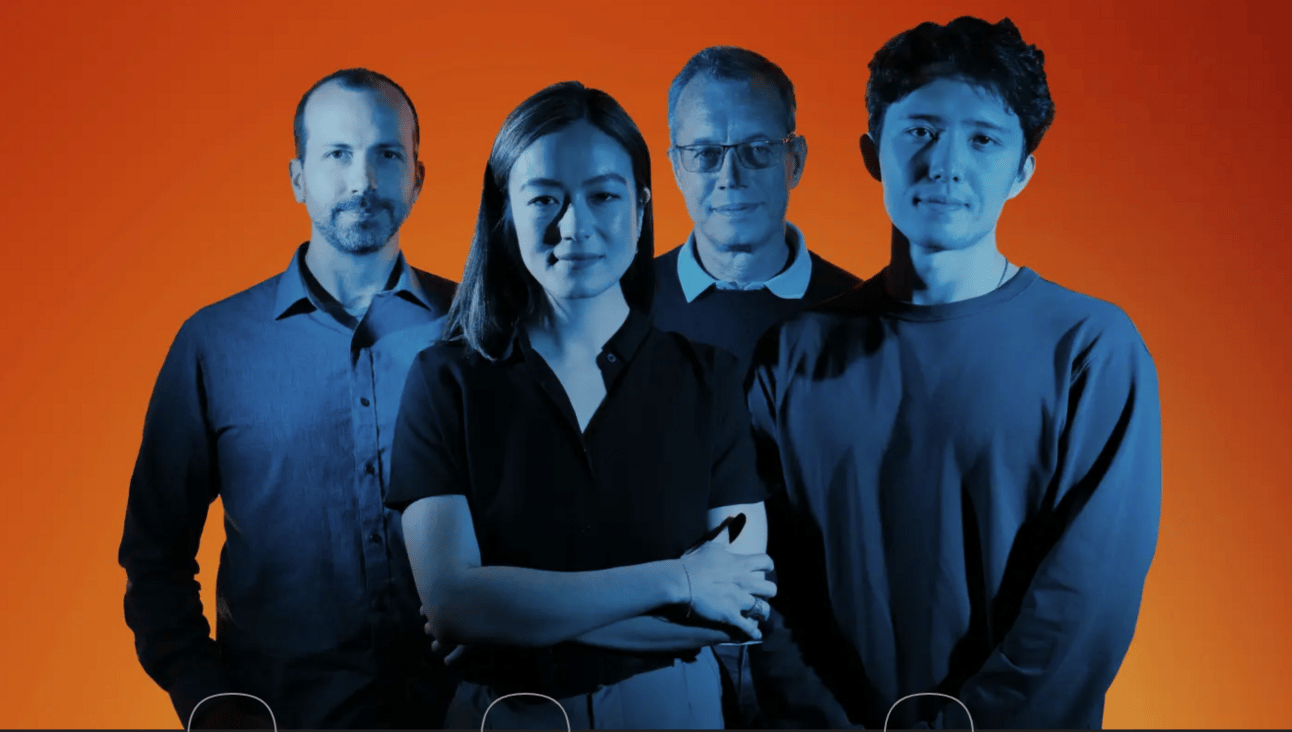
Welcome, AI Enthusiasts.
Ephos, a startup founded by Italian physicist Andrea Rocchetto, aims to revolutionize AI and quantum computing with glass-based quantum photonic chips.
Letta, an AI startup from UC Berkeley, has emerged from stealth with technology that helps AI models remember users and conversations.
In today’s issue:
🤖 EPHOS
🦾 LETTA
🛠️ AI Products
🥋 AI Dojo
🤖 Quick Bytes
Read time: 5 minutes.
LATEST HIGHLIGHTS

Image source: Ephos
To recap: Ephos, a startup founded by Italian physicist Andrea Rocchetto, aims to revolutionize AI and quantum computing with glass-based quantum photonic chips. Rocchetto conceived the idea during the COVID-19 pandemic, recognizing Italy's untapped talent in quantum technologies. Ephos has raised $8.5 million in seed funding to establish a facility near Milan, the first dedicated to producing glass-based quantum photonic circuits. Unlike competitors using silicon, Ephos’s chips use glass, reducing photon loss and improving efficiency. Early interest has come from quantum computing startups and major data center builders. Backed by NATO, the European Innovation Council, and top investors, Ephos is positioned to address the growing demand for faster, energy-efficient computational infrastructure. The startup also sees potential in defense, historically an early adopter of advanced technology.
The details:
1. Ephos has raised $8.5 million in seed funding to build the first facility dedicated to producing glass-based quantum photonic circuits near Milan.
2. The company’s glass-based chips aim to reduce photon loss, offering a more efficient alternative to silicon-based chips for quantum computing and AI workloads.
3. Backers include NATO’s Defence Innovation Accelerator, the European Innovation Council, and major investors like Starlight Ventures, with early interest from quantum computing startups and hyperscalers.
Here is the key takeaway: Ephos is pioneering the development of glass-based quantum photonic chips, aiming to significantly enhance the efficiency and speed of AI and quantum computing, with strong backing from key investors and institutions like NATO and the European Innovation Council.

Image source:Letta
In Summary: Letta, an AI startup from UC Berkeley, has emerged from stealth with technology that helps AI models remember users and conversations. The startup raised $10 million in seed funding at a $70 million valuation, backed by prominent investors like Felicis and angel investors such as Google’s Jeff Dean and Hugging Face’s Clem Delangue. Letta, founded by Berkeley PhD students Sarah Wooders and Charles Packer, is commercializing the open-source MemGPT project, which solves the problem of AI models lacking long-term memory. Letta Cloud will offer stateful AI agents for developers, positioning itself as an open-source alternative to OpenAI's closed ecosystem.
Key points:
1. Letta has raised $10 million in seed funding at a $70 million valuation, with backing from prominent investors including Google’s Jeff Dean and Hugging Face’s Clem Delangue.
2. The startup, founded by UC Berkeley PhD students Sarah Wooders and Charles Packer, emerged from the Sky Computing Lab and commercializes the open-source MemGPT project.
3. MemGPT solves a key issue for AI models by enabling long-term memory, allowing AI agents to remember users and past conversations, enhancing personalization.
4. Letta is positioning itself as an open-source alternative to OpenAI, offering a flexible solution that can work with multiple AI models, not just one ecosystem.
Our thoughts: We find Letta’s emergence from stealth particularly compelling for several reasons. First, the focus on solving the memory limitation in AI models is a significant breakthrough. AI applications, especially in customer service and healthcare, require long-term memory to offer truly personalized experiences, and Letta’s MemGPT addresses this gap directly. It's not just an incremental improvement—it's foundational for creating more intelligent, responsive AI systems. Second, Letta's positioning as an open-source alternative to proprietary AI ecosystems like OpenAI is bold and timely. The open-source vs. closed ecosystem debate is heating up, and developers are increasingly valuing transparency, especially when it comes to mitigating issues like hallucinations in AI. Letta’s alignment with the open-source movement could attract a wide base of developers looking for flexibility and control over their applications. Third, Letta's rapid viral success and the backing from big names in AI demonstrate the credibility and anticipation surrounding this project. The involvement of Berkeley’s Sky Computing Lab adds to its allure, as the lab has been the birthplace of numerous successful tech ventures. Overall, Letta’s combination of cutting-edge technology, strategic open-source positioning, and early validation from investors and the developer community makes it a startup to watch closely. If they execute well, they could have a substantial impact on the AI agent space.
TRENDING TECHS
🛠 Pinecone- Long-term memory for AI
🧾 Perplexity-Where Knowledge Begins
🤖 Stable Diffusion- Open models in every modality, for everyone, everywhere.
AI DOJO
AI Tutoring for Personalized Learning
Problem:
Traditional one-size-fits-all education models struggle to meet the individual learning needs of students. Teachers often lack the time and resources to provide personalized attention to each student, resulting in students falling behind or not fully understanding concepts.
Solution:
An AI tutoring system can act as a personalized virtual tutor for students, adapting to each individual's learning style, pace, and knowledge gaps.
Key Features:
1. Adaptive Learning Paths:
AI analyzes a student’s responses, performance, and behavior to tailor lessons and exercises to their specific needs. If a student is struggling with algebra, the AI tutor can focus on foundational concepts before advancing to more complex topics.
2. Immediate Feedback:
The AI tutor provides real-time feedback, correcting mistakes instantly and explaining concepts in different ways until the student understands. This enables continuous improvement without waiting for teacher grading or intervention.
3. Natural Language Processing (NLP):
Using NLP, the AI can engage in human-like conversations with students, answering questions, clarifying doubts, and simulating one-on-one tutoring sessions. It can ask probing questions to test comprehension and guide learning through dialogue.
4. 24/7 Availability:
AI tutors are accessible anytime, providing support whenever students need it, whether for homework help late at night or during revision sessions before exams. This is especially useful in distance learning or for students in different time zones.
5. Interactive Learning:
AI-powered tutoring can include gamification elements and interactive visual aids, like quizzes, simulations, or virtual environments, to make learning engaging and fun. For example, AI tutors can use visualizations in subjects like math or science to help students grasp abstract concepts more easily.
6. Progress Tracking and Reports:
The AI tutor tracks a student’s progress over time, identifying areas of strength and weakness. It generates reports for both the student and their teacher, offering data-driven insights into their learning journey and suggesting adjustments in the study plan.
7. Multilingual Support:
AI tutors can support students in different languages, making education accessible to non-native speakers or students in international settings. This feature ensures broader accessibility for learners from diverse backgrounds.
8. Emotional Intelligence:
Some advanced AI tutors incorporate emotional recognition, assessing the student's frustration or confusion through tone or facial expressions (if video is involved). The system can then adjust its approach to provide encouragement or simplified explanations.
Example:
A middle school student, struggling with fractions in math, logs into an AI tutoring app. The AI recognizes gaps in their understanding of basic fraction concepts and begins by offering simpler exercises. Through interactive lessons, quizzes, and step-by-step feedback, the AI helps the student master the topic. As the student progresses, the tutor adapts, offering increasingly challenging problems and eventually moving on to more advanced math topics like percentages or ratios.
The AI tutor provides the teacher with weekly progress reports, detailing where the student has improved and highlighting areas that still need attention. Over time, the student becomes more confident in math, learning at a pace suited to their abilities.
Benefits:
- Personalized Attention: Students receive customized learning experiences, which is often hard to achieve in traditional classrooms.
- Scalability: AI tutors can support thousands of students at once, making them ideal for educational institutions or online learning platforms.
- Cost-Effective: AI tutoring reduces the need for private tutors, making quality education more affordable.
- Efficiency: Students learn faster by receiving targeted help on weak areas, improving retention and understanding.
This AI tutoring system could be a powerful tool for educators and learners alike, revolutionizing how students approach learning and knowledge retention.
QUICK BYTES
Rabbit's r1 device, initially met with high expectations, is set to launch a web-based version of its Large Action Model (LAM) this week, following a series of updates and improvements. CEO Jesse Lyu acknowledged that the company's early promises were overly ambitious but aims to deliver a more versatile agent capable of performing various tasks online, such as booking tickets or playing games.The new LAM version will analyze web pages, break tasks into actionable steps, and execute them, regardless of specific services. Despite its potential, the current version still requires careful prompt engineering to function effectively. User data won't be harvested for model improvements just yet, but future updates, including a "teach mode," are planned. While Rabbit has ambitious goals, such as expanding its agent to desktop applications, Lyu emphasized that the device's unique value lies in being a cross-platform solution that operates outside existing app ecosystems. An over-the-air update will soon be available for r1 users, but Lyu advised that the agent is still a work in progress.
Meta Connect 2024 begins on Wednesday at 10 a.m. PT, featuring a keynote by CEO Mark Zuckerberg. The event will highlight Meta’s XR platforms, the metaverse, and the open-source generative AI platform Llama. Attendees can expect announcements regarding new hardware, including the Meta Quest 4 and updates to the Meta Ray-Bans, as well as a preview of the "Orion" AR headset.The keynote will be streamed live on the Meta Connect website, Meta's developer Facebook page, and through Horizon Worlds for Meta Quest users. Additionally, the event will be available on YouTube, with further developer panels streamed throughout the event, which runs until Thursday. TechCrunch will provide live updates and news from the event.
Cloudflare plans to launch a marketplace within a year that allows website owners to charge AI model providers for scraping their content. This initiative is part of CEO Matthew Prince's effort to give publishers more control over how and when AI bots access their sites. As a preliminary step, Cloudflare introduced a free tool called AI Audit, which enables website owners to monitor AI scraping activity and block unwanted bots. The marketplace aims to empower smaller publishers, who often see their content scraped without compensation, by allowing them to negotiate terms and prices for AI access. While the details of this marketplace are still vague, Prince believes it could benefit the AI ecosystem by encouraging fair compensation for content creators.
SPONSOR US
🦾 Get your product in front of AI enthusiasts
THAT’S A WRAP
